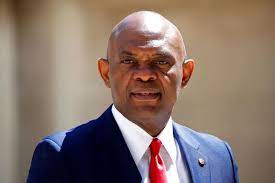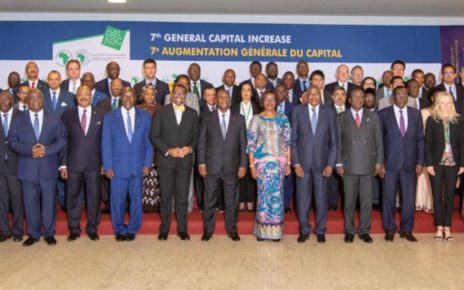The federally generated revenue from oil and non-oil sources for the nine-month period ended September 30 this year stood at N6.93 trillion as against the projected N9.96 trillion during the period.
An analysis of data obtained from the Central Bank of Nigeria (CBN) on the federal revenue during the period showed that N2.08 trillion was generated in the first quarter while the second and third quarters’ revenue accruals stood at N2.31 trillion and N2.52 trillion respectively.
By budgetary estimates, the gross revenue generated in each of the quarters was far below the budgeted N3.32 trillion.
The revenue collections from January to September indicated that out of the actual revenue of N6.93 trillion, N4.08 trillion or 58.7 percent of the total earnings was raked in from oil sources while non-oil sector accounted for the balance.
A further analysis of the oil revenue earnings showed that Petroleum Profit Tax (PPT) and royalties accounted for N2.68 trillion while other oil revenue raked in N1.08tn and crude oil and gas sales contributed the balance of N312 billion.
The CBN report showed further that earnings from non-oil sources stood at N2.85 trillion with Value Added Tax (VAT) accruing N820.95 billion, Companies Income Tax (CIT) N1.08 trillion and Customs and Excise duties accounting for N509.08 billion of the revenue.
The balance of N433.36 billion was generated from other non-oil revenue sources.
It would be recalled that the Minister of Finance, Mrs Zainab Ahmed, had said recently that the decline in revenue had made it imperative for state governments to reduce unnecessary overhead costs in order to enthrone fiscal discipline.
She said the move was crucial to increasing states’ Internally Generated Revenue (IGR) in order to efficiently maximise the scarce resources needed to stimulate the economy.
Ahmed, who spoke at a conference with the theme: ‘Unlocking the potential of the non-oil sector as a sustainable source of government revenue’ urged the states to look inwards as a strategic option of optimising their IGR potential.
The minister said: “It is on record that due to persistent domestic fall in oil revenue over the past years, it became extremely difficult, if not impossible for us to meet duly budgeted obligations.
“This happened because of the age-long over-reliance on oil, even though Nigeria is abundantly endowed with multiple resources, which provide varied sources of revenue. There is stupendous potential for diversification of revenue. We can reflect soberly on our national endowments and make conscious efforts to exploit and manage them effectively.
“Let me remind us that we need to develop cost-effective strategies to increase our IGR, reduce unnecessary overhead costs, enthrone fiscal discipline and transparency so as to optimise available limited resources, while efforts are sustained to broaden our revenue base”, Ahmed added.
The minister promised further that the Federal Government would continue to promote transparency in revenue collections and efficiency in utilisation in the country.
She said: “Let me acknowledge and commend the wisdom behind the development of the new revenue reporting template that was engineered by the Commissioners for Finance. It is imperative to mention that its implementation will be one of the key reforms in revenue remittances into the federation account.”




